Jeremie Averous's Blog, page 44
May 7, 2019
How Various Meanings are Used for the ‘Fourth Revolution’ concept
This excellent post by Quartz ‘We’re thinking about the fourth industrial revolution all wrong‘ gives some perspective on terminology. It compares what is now generally understood as the “Fourth Industrial Revolution” (1st: steam engine; 2nd: oil & electricity; 3rd: internet; 4rd: digital) and what we name here in this blog the Fourth Revolution (1st: language; 2nd: writing; 3rd: broadcasting (printing etc); 4th: cheap 2-way communication).
 Basic RGB
Basic RGBI like very much this article of course because it exposes that we should not be myopic and that the real change is akin to what we expose in this blog since the beginning. What is usually meant by the “Fourth Industrial Revolution” is in fact just a way to name a trend into the digital, but the real change is really very cheap, global, 2-way communication. In this article, it is mentioned as “the period of industrialized intelligence, rising with the mental-energy-saving inventions of the mid-20th century and continuing through today. Much as the industrial revolution dehumanized biological strength with machines, the displacement of biological intelligence with computers represents the dehumanization of intellectual labour. Projecting current techniques a few years forward suggests that autonomous systems will eventually be capable of outcompeting humans in every area where intelligence is the key component of production.”
To avoid falling in the trap of overestimating the importance of present trends, it is always worth taking a deep historical perspective. In any case, the current transformation is really a revolution, and probably much deeper than the concept of “Fourth Industrial Revolution” would imply: we are now beyond the Industrial Age!

May 4, 2019
How the World is Really Improving
The world is improving. There is much less poverty today than there was a few years or decades ago, and it is much more visible. Yet, amazingly, there is substantial controversy on this positive message. For example, in this article ‘Bill Gates tweeted out a chart and sparked a huge debate about global poverty‘, this controversy is expressed in length.
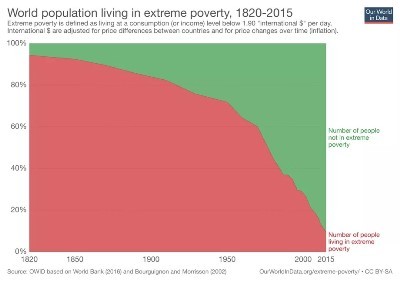 The controversial chart from Bill Gates
The controversial chart from Bill GatesThe interesting aspect of the controversy is that most of the counterarguments are based on moving the signpost: while there was a standard for defining poverty globally, some argue that it is not sufficient any more and it should now be raised substantially. Of course, we don’t define poverty in the same manner in developed countries and in less developed countries. Of course we need to improve further. Yet, why move the signpost when the situation is improving?
In addition, many studies show that in most aspects, the story of the chart is true and that all segments of poverty are seeing their situation improve. I read not so long ago the enlightening book by Jack London, ‘the people of the abyss‘ about his experience in the poorer districts of London at the end of the 19th century. So say the least, the situation has improved greatly!
It is good to be demanding on the subject of poverty, but let’s not underestimate the substantial progress that is made. It deserves some celebrating, even if it is never enough.

May 2, 2019
How Songs Are Becoming Shorter – and this Reflects our Increasingly Frequent Switching
Did you notice that songs are on average getting shorter? That there are less words in their titles? That is just part of a series of trends that reflect our modern usage of digital access. More details are to be found in this excellent Medium post ‘Music is Getting Shorter‘. A more general discussion on this issue is contained in this excellent post by Mitch Joel ‘Welcome To Toggle Economics‘.
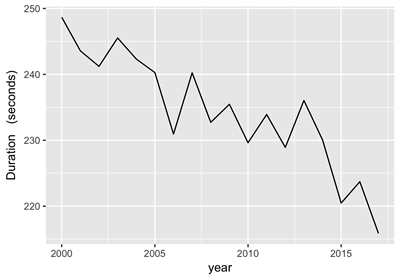
The controversy lies in whether this trend is due to the economy of music distribution (streaming), or in our shorter attention span. The latter explanation has received much attention. Mitch Joel argues however that there are indications that our attention span can remain substantial if we want (such as book reading); and that what really makes the difference would be our ability to switch more frequently from one center of attention to the other.
And it is becoming less and less difficult to switch from one internet browser tab to the next, or from one phone app to another.
Whether it is an intrinsic shorter span of attention, or the disturbance of too much choice and a too easy possibility to switch, when it comes to roaming services such as music, the result is clearly that we crave shorter durations. And the trend is just starting!

April 30, 2019
How Digital Detox May Not Be Effective
“Digital Detox” is a growing trend, a manner to unplug from our increasingly hectic and 24h way of life and find back our balance and ‘real connections’. This extreme process is increasingly trendy (although it just implies unplugging from our screens and internet), and this certainly reflects some level of anxiousness. Yet the effectiveness of this process is disputed, or at least not proven scientifically, as exposed in this Quartz post ‘Digital detoxes are a solution looking for a problem‘.
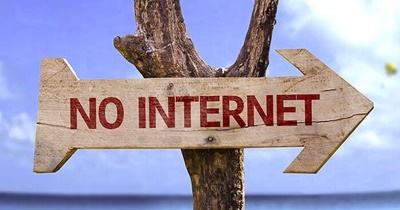
The point is to examine whether digital detox really improves mental health, like other detoxes do (by the way, the terminology assumes that digital is an addiction).
The article mentions quite a number of excellent references on the impact of digital and social networks on mood and other factors such as sleep. It is clear that in some ways, social networks impacts mood, in particular as people tend to post only the good things that happen to them. Still, the amount of impact on mental health is controverted.
I like the thesis of the article which takes the view that as always when a new technology is introduced, its effect on health is controverted, and adequate usage rules must be invented (one will remember the famous articles in the early 19th century about the fact that running on trains above a few mph should result in certain death).
My view is that digital services are part of our way of life and provide us with significant services that improve our lives (for example, navigating in an unknown town, knowing the latest infos on local transportation etc). They also make it more hectic. On the other hand, excessive usage is certainly harmful. Cutting off entirely is not any more an option; however, making sure we have spaces with lower usage such as on week-ends is certainly a good idea for balance. There is so much to be learnt in that respect that it will take years of learning to understand really what is harmful and adapt our behavior. Let’s use digital in a measured way in the meantime!

April 27, 2019
How Pain and Suffering Must Be Distinguished
There is a substantial distinction between pain and suffering. Pain is what is, and suffering is what we think it is. While pain will happen, depending on circumstances, suffering is optional.
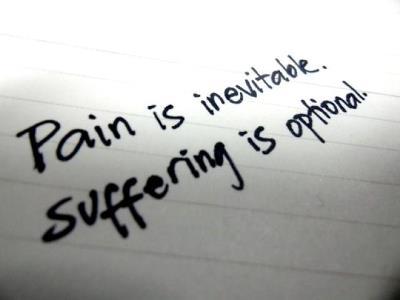
I am always impressed by how much suffering impacts the behavior and balance of people. We tend to imagine how things could be and this creates often immense suffering, while there is no reality in this imagination, or at least no tangible realization. We tend to worry too much and this creates suffering.
This distinction is absolutely essential, and I find that too often people to mix both concepts. We can do something about suffering; it involves personal discipline, and living more in the present.
In your personal circumstances, can you identify what is pain and what is suffering?

April 25, 2019
How To Apply Prioritization Properly
Robin Sharma writes “The real key to getting great things done is to stop doing so many good things“. Easy said, not so easy done! He complements this statement with “Success has less to do with hard work and more to do with massive focus on your few best opportunities“
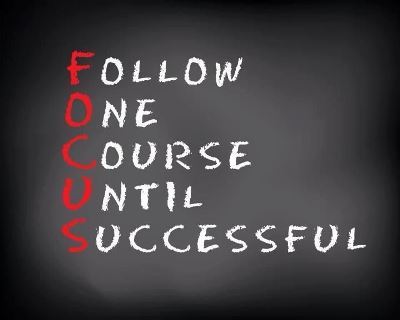
While I concur with these statements overall, and do struggle to prioritize like most of us do, I still have some reservations on some aspects.
The first one is that I believe it is important, while focusing on our current projet, to keep one’s mind open on other things and the general environment. They might well transform into even better and more exciting opportunities! Therefore, it is essential to reserve time for personal education and meeting new people, and identifying new opportunities, even if that’s only for limited time. It’s what I call a diversification strategy (it might even allow you to identify ways of doing your current project more effectively).
The second is that even if you focus on your best opportunity (or opportunities), lots of hard work is still required to get where you want to be, because it is probably something nobody has ever done before, at least in the specific situation you try to apply it. So don’t believe focus does not mean hard work!
Still at the end, it is true that prioritization and focus is a key to success, even if it remains important to be aware of one’s environment and how it shifts.

April 23, 2019
How to Apply the Accordion Principle to Your Projects
I love this post by Pamela Slim ‘The Accordion Principle‘ because it resonates with my facilitating and consulting practice, and brings a systematic approach to a practice I often use.

The idea is to have a cycle between taking the high-level view on the challenge or problem to solve, and to focus on some detailed work. It is to make a systematic ‘health-check’ of what we are focusing on by looking at the big picture regularly. “The key is not to avoid looking at the big picture, it is to consistently move between the big picture and the small picture. I have termed this practice The Accordion Principle.“
In Pamela’s view it gets even further: “The new client will say something like “I don’t even know where to start. There are so many things going on right now, and they are all kind of swimming in my head.”. “Just start anywhere,” I say.” The point here, is that we need to start somewhere, and we need to start small. And then when we take the big-picture view, we’ll figure out how things have changed and how to progress with the rest.
Are you ready to apply the ‘accordion principle’ more systematically to your endeavors? Work on the details, then go wide to check the full picture, then go detailed again, and repeat… until you get there!

April 20, 2019
How Healing Requires Personality Blossoming: a Holistic Approach to Medicine
In an excellent book (in French) ‘les pouvoirs de l’esprit sur le corps‘ (the powers of spirit over the body), Patrick Clairvoy, a former army doctor and now emergency doctor in a leading French hospital, details the relationship between spirit and body when it comes to healing.

Beyond an analysis of classical healing miracles, he shows that real full physical healing requires personality to evolve and blossom. Concurrently, what prevents many people to heal is the avoidance of this internal work.
The core of the book is that while modern western medicine takes a mechanistic, organ by organ approach to medicine, there is also a need for a holistic approach considering ourselves as a complex system. In this system, there are complex interactions between organs through connections we only start to discover; and our mind and spirit also plays a large role in what is happening. Therefore, healing can be greatly influenced by our mind. The miracle of the intrinsic healing powers of our body can be greatly amplified by the way we deal with the illness.
I am sure that in the next few years, this holistic approach of medicine will develop as we increasingly recognize that the mechanistic approach of medicine, while it has brought many benefits, has to be supplemented by a systemic approach.

April 18, 2019
How to Apply Ethics to Digital Applications in the Collaborative Age
Following up and expanding on our previous post ‘How to Deal with the Conundrum of Smart or Safe Cities‘, let’s expand about the issue of ethics in technology. This excellent post Medium post by Rachel Coldicutt ‘Ethics won’t make software engineering better‘ addresses some of the core issues: more ethics trainings for engineers won’t by itself address the issue.
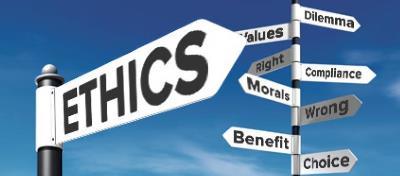
She explains, “Ensuring more computer scientists have a rudimentary understanding of ethical decision-making will certainly broaden their horizons as individuals, but it’s not enough to transform how technology is made or how it affects society. A more radical proposal is to train arts and social science graduates in product and experience design, so that people who put people first have the skills to shape technology more confidently.”
Her point here is that even ethical computer scientists may fail without a proper ethical governance. And this governance must foster multi-disciplinary-based decisions. She fosters the presence of social science experts as part of the teams.
Whether this is only what is needed is debatable, but the point that ethics must be considered from a diverse viewpoint is essential, inasmuch as it is well known that computer engineering has a gender and ethnical bias, which needs to be checked. It is why governance and authorities must be diverse and not only engineering-centered.
In summary, Rachel Coldicutt states “Knowing what to do with tech must become at least as valuable a skill as knowing how to make it.“

April 16, 2019
How to Deal with the Conundrum of Smart or Safe Cities
Smart Cities is a big trend that influences nowadays a lof of cities’ development policies. It is aimed to bring many benefits to citizens and large city administration at the same time. In parallel the concept of Safe city has emerged – using the data to improve citizen safety through increased surveillance.
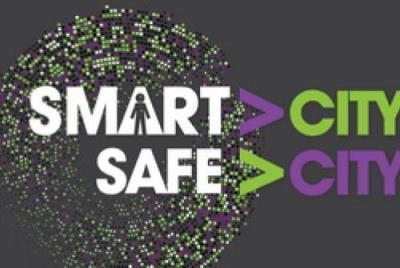
As always, technology comes with advantages and drawbacks. Like Internet allowed incredible 2-way communication advances, it came along with easier surveillance capabilities. Smart cities will thus come also with increased surveillance capabilities, in the name of pubic safety.
Ethics is becoming an increasing concern in our society, as a way to address democratic control on the modern surveillance capabilities. It has to be stressed that surveillance is not a recent issue – for long times, autocratic governments have controlled and opened private correspondence and spied on its citizens. As it becomes increasingly easy to implement surveillance programs, the setup of adequate ethical and independent control rules becomes even more essential.
Maintaining balance between the benefits of increased digitalization and sensors’ data, and privacy, is a essential challenge we are facing in the next few years. At the same time, fear of surveillance should not prevent us from benefiting from smart advances. The creation of new institutions to guarantee ethical treatment of the data is a challenge we all need to address.




